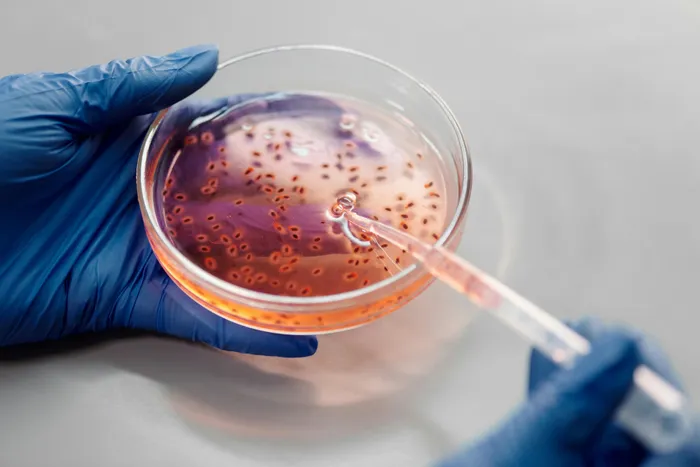Understanding E. coli: causes, symptoms, and prevention

The bacteria can be transmitted person to person, through hand-to-mouth contact, and coughing. Picture: Pexels
E. coli stands for Escherichia coli, a type of bacteria that is found in the environment, foods, and intestines of people and animals.
Many types of E. coli are harmless and even beneficial, living in your gut and aiding in digestion while protecting your body from other microbes.
E. coli contamination occurs when food (meat or vegetables) come into contact with the food through farming practices or processing. Vegetables can be contaminated when they're grown near animal farms. Fecal matter combines with rainwater, and the runoff can enter the fields.
Not all strains of E. coli can cause illness, but the ones that do are debilitating, and it takes between five to seven days for the body to recover.
The bacteria can be transmitted person to person, through hand-to-mouth contact, and coughing.
E. coli can lead to an array of symptoms, from diarrhoea to urinary tract infections, and is typically spread through contaminated food or drink. Symptoms of an E. coli infection vary, because different strains cause different symptoms.
The most common symptoms include:
- Severe stomach cramps
- Diarrhoea (may be bloody)
- Vomiting
- Fever (typically less than 38 degrees Celsius)
- UTIs, if the E. coli travels from the gut to the urinary tract
- Meningitis, in rare cases, if the E. coli spreads to the fluid surrounding the brain
Most people start feeling sick two to four days after consuming the bacteria, although illnesses can start up to 10 days after exposure.
Treatment of E-coli
There is no cure for an E. coli illness, however treatment typically includes drinking water to prevent dehydration and exhaustion, as well as lots of rest.
Your doctor may also prescribe antibiotics depending on the strain of E. coli you have, which can be administered orally or through an intravenous drip.
How to protect yourself from E. Coli
A few healthy habits can lessen your risk of getting sick from an E. coli infection.
- Wash your hands.
- Wash fruits and vegetables thoroughly under running water.
- Cook meat thoroughly. For beef, this means cooking to an internal temperature of at least 62 degrees Celsius and for ground beef and pork, an internal temperature of at least 610 degrees Celsius.
- Refrigerate perishable foods, such as meat, seafood, dairy, some types of fruits and vegetables within two hours of opening, buying, or preparing.
- Thaw frozen food in the refrigerator, in cold water, or in the microwave, as thawing food on the counter may allow bacteria to quickly multiply as parts of the food reach room temperature at different times.
- Avoid cross-contamination of food and food-prep items. Make sure you wash your hands and any other items (like counters, cutting boards, and utensils) after they touch raw meat.
- Avoid drinking raw milk and unpasteurized dairy products and juices.Avoid swallowing large amounts of water while swimming in pools, lakes, ponds, and streams.
- Wipe from front to back after urinating. This ensures you don't push any bacteria (including E. coli) from around your anus and genital region closer to your urinary tract, which can increase your risk of a UTI.
Some people are naturally at a higher risk of contracting a foodborne illness, including pregnant people, newborns, children, older adults, and people with weak immune systems (such as people with cancer, diabetes, or HIV/AIDS).
IOL Lifestyle
Related Topics: